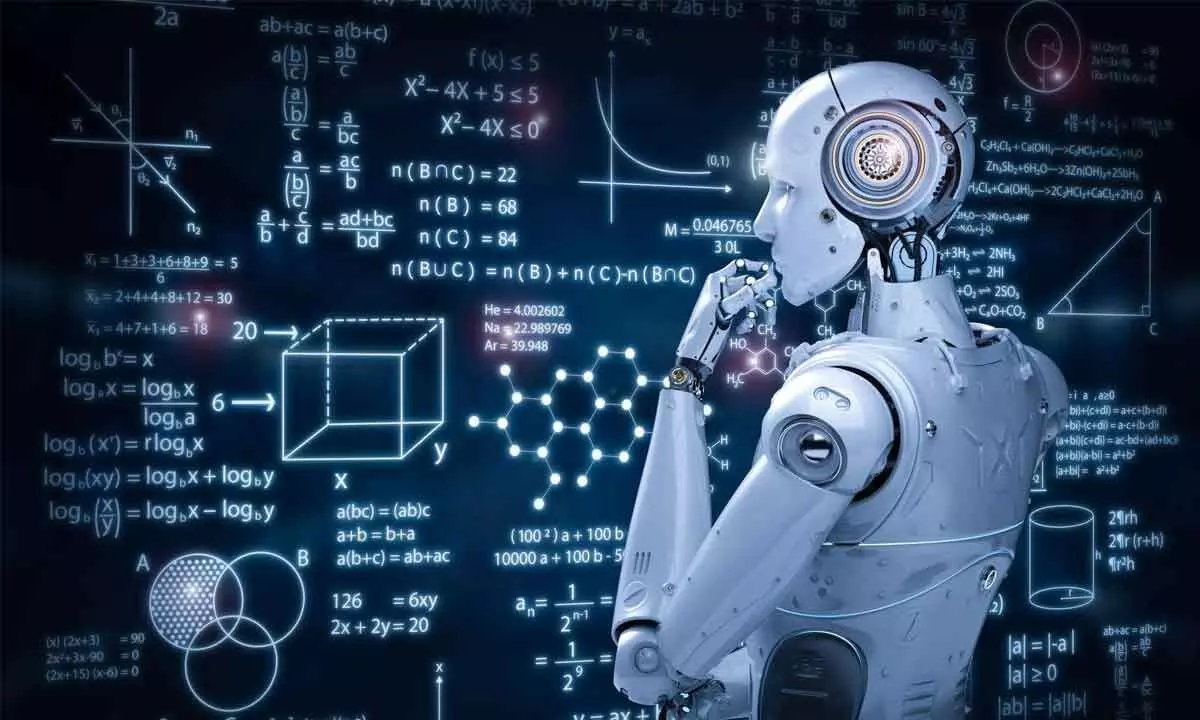Importance of Data Science and Artificial Intelligence in education sector

Meet Aswini Thota, an Analytics and Artificial Intelligence (AI) leader who solves organisational and business problems leveraging data.
Meet Aswini Thota, an Analytics and Artificial Intelligence (AI) leader who solves organisational and business problems leveraging data. He always believed in the power of data and amased what insights we can grasp from it.
Over the course of his career, Aswini has developed a skill set in analysing data and he hopes to use his experience and expertise in data science to help people discover the amazing career opportunities that lie ahead in the field of Data Science. He has effectively evolved from a machine learning researcher to an award-winning AI / Data science leader. He is currently working as a Principal Data Scientist at Bose Corporation
Aswini holds two master's degrees in Electrical Engineering and Data Science. For his work in the field of AI for Business, He was recognised with prestigious '40 under 40 Data Scientist' and 'Indian Achievers' awards.
Aswini believes that in order to learn anything of value, you need to start with the foundation and develop the roots of the tree. Only from there will you be able to learn concepts and specific skills that connect to the foundation. Learning becomes exponential when structured in this way.
Taking his experience in Analytics and AI, Aswini will take you on an understanding of data science and analytics…
Excerpts from an interview with Aswini Thota
How is AI contributing to the education sector?
AI is rapidly transforming the education sector. The innovations in the data storage ecosystem and the advancements in Artificial Intelligence (AI) in the last decade have enabled organisations to store massive amounts of data and use that data to generate predictive insights.
The education sector has also experienced massive welcoming changes in recent years. Ebooks replaced print versions, massive open online courses emerged, and hours-long lectures are being discouraged in favor of bite-sized learning.
These innovations in the education sector, catering to the changing tastes of millennials and generations-Z's, have changed the education sector as we know it. The Covid-19 pandemic had catapulted specific emerging changes in the education sector.
We now live in an era where online learning is the core part of students' education. A vast volume of data on students ' online activity and grades is collected and stored. This abundance of data enables AI algorithms to provide experiences that weren't available before. Below are some of the keyways in which AI is enhancing the learners' experience:
Personalisation: This is probably the primary use case of AI in the education sector. When learners consume educational content from online mediums, they generate a massive data trail. This data can then be fed into AI models to create recommendations, suggest learning paths and offer help.
Information retrieval: Students are confronted with an overwhelming number of resources in this digital age. It can be challenging to precisely land at the documents that can help them with their question, and it's very easy to lose engagement during the process. Natural language processing, a subfield of AI, is helping organisations embed chatbots in their learning platforms. These chatbots prove to be good at retrieving information that matches learners' questions. This method of retrieving information by asking questions instead of searching for the answer manually is verified to improve the learning experience.
Increase engagement: While students represent one end of the spectrum, teachers and course creators are at the other end. It is equally essential for educators to make data-driven decisions. AI and big data systems can collect and summarize the usage patterns and help uncover the latent behavioral themes of their most engaged and successful students. This knowledge can then be used to improve students' learning experience.
Why is AI important for personalising higher education learning?
The difference between good and great teachers is that great teachers recognise that every student is different and can tailor learning strategies to students based on their caliber and needs. Recent advancements in AI are making this possible at scale. A teacher can probably personalise learning to a certain degree, but what if your class size is hundreds of thousands of students?
Manual approaches to personalised learning for open courseware or MOOCs (Massive Open Online Courses) are impossible, and AI can help develop personalised learning strategies.
Information is generated every time a student -watches a video, joins class, is not active, submits an assignment, etc. This data can then be used to generate predictions on the pathways that help students to succeed the most.
How can AI improve higher education both Online and Offline?
There are two ways to leverage AI. They are creating AI-driven products and using AI to generate insights. Creating an AI-based solution involves collecting the data, training the data using Al algorithms, and developing predictions based on the learned model. Inputs to the model are supplied to the model through a software platform in an online setting. These inputs are then passed to the trained model.
Whereas in an offline environment, a data scientist or statistician will use the trained model to generate insights and run what-if scenarios. Online education has evolved from an experimental product to reality in the past decade. Online medium for higher education enables organisations to personalise and deliver tailor-made content for the students. This is made possible by observing the user interaction patterns, test scores and user engagement.
AI is also useful for offline mediums, where data-driven insights play a part. For instance, AI can help predict a student's success based on their engagement, attendance and scores. Early detection of students' future performance might help universities and colleges craft programmes that can help students succeed.
What are the skill sets required to get started with Data Science?
A modern-day data scientist is expected to have a wide array of skills. That's not to say that one must be an expert at all these skills. There are several core skills, and others are nice to have.
Core skills: Data analysis, programming, statistics, machine learning, data visualisation, data inference, and business acumen.
Secondary/ nice to have skills: Model deployment, big data frameworks, advanced machine learning algorithms such as deep learning and reinforcement learning.
Soft skills: Storytelling, communication results, critical thinking, and problem-solving.
Any advice for the candidates who want to start career in Data Science
My advice for aspiring data scientists is to develop their critical thinking skills. Before you create a model, think about the data that can help explain the variability, quantify the gaps in the data, evaluate the biases in the data, and pay close attention to what success means for your business and your customers. Learn the foundational elements of machine learning algorithms. Often, I see aspiring data scientists equating Statistics to R programming language and Data Science to Python programming language. For the most part, data science is a tool or programming language agnostic. Machine learning models are a bunch of mathematical formulations trying to minimize error, and most of the models have certain assumptions baked into them. Try to form deep opinions about the inner workings of these algorithms before you jump on to coding.
What jobs are available in AI, Data Science?
The fields of Data Science and Artificial Intelligence have emerged a lot in the last few years, and the definitions of these careers are also not always transparent. Generally, AI is closely integrated with several enterprise functions:
AI engineers/ Data Scientists: Data scientists are responsible for identifying the data required for the model, cleaning the data, analysing the gaps in the data, developing AI and machine learning models, and evaluating the results. The primary focus of the data scientists is to generate statistically sound insights that are generalisable.
Data Engineers: Data engineers build big data and information pipelines. Information required for AI models often lives in different databases, and data engineers build pipelines to aggregate the data together. They also play a crucial role in ensuring that the data is in model-ready format and can be readily consumed by the models. Data engineers also perform the critical role of validating the data quality.
Data Analysts: Data analysts perform the data analysis using business intelligence and SQL tools. A data analyst's job is very closely aligned with a data scientist's; the key difference is that the data analysts generate insights by leveraging descriptive analytics instead of using machine learning. Roles such as database administrators, business analysts, MLOps developers also are very closely aligned with the data science function.















